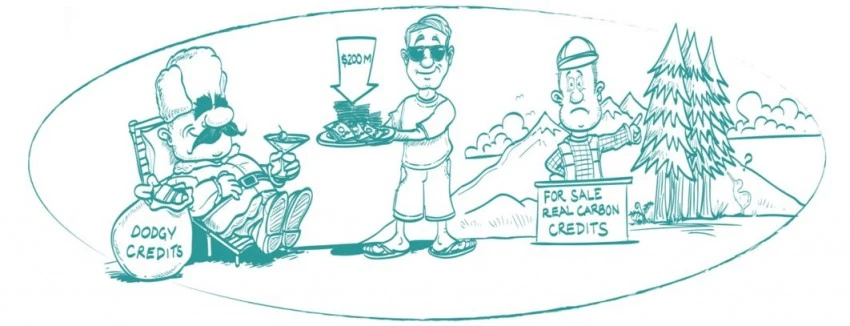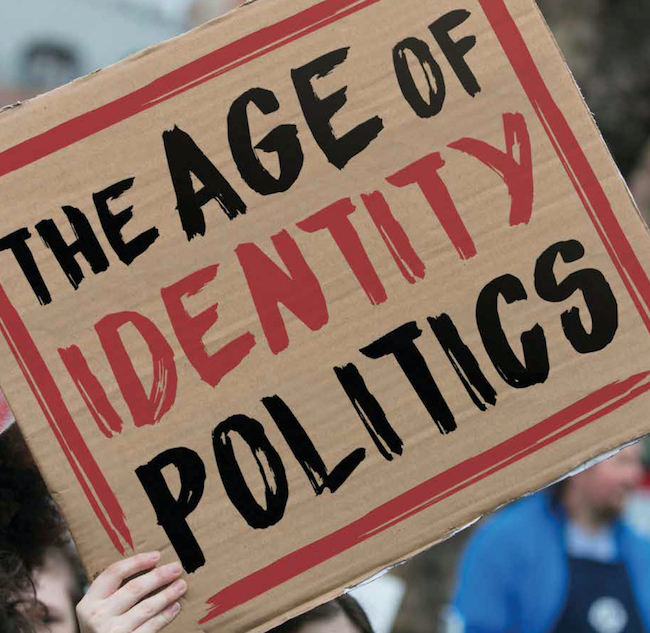
THE GOVERNMENTS INSANITY OF CLOSING DOWN MARSDEN POINT OIL REFINERY KNOWING FULL WELL NEW ZEALAND RISKS ENDING UP LIKE A BOAT WITHOUT A PADDLE. ‘BEING LEFT HIGH AND DRY’
My research refers to the Kigali Amendment of the Montreal Protocol: Disruption of Shipping and Aviation. In 2016 The Montreal Protocol was amended, the Kigali Amendment was introduced and implemented by the UN. In NZ the Ozone Layer Protection Amendment Regulation 2018 was introduced to ensure that industrialized, and developing UN Member countries reduce their HFC production, consumption over a given period of time. (All part of parcel of the UNEP Agency global Initiative to be implemented in all UN Nation States). After researching the Kigali Amendment red flags were flying when I read headline on shipping delays, less global freight traffic, endless yo-yo’s at ports around January to March 2023, this included long wait times and shipping delays. The goal of the Kigali Amendment particularly in 2023 is to phase down the production, use of HFCs by shifting to a more Eco-Friendly initiatives worldwide, ultimately this would lead up to an 80-85% reduction in the production of HFCs by 2036
There have been challenges in implementing the Kigali Amendment successfully as countries have been and still inaccurately estimate their emissions (ETS is a book keeping Scam). Major producers of HFC- China, US, India by May 2021 had not signed the Kigali Amendment to the Montreal Protocol (UN), however NZ Govt had agreed to the obligations under the Montreal Protocol. Under the Ozone Layer Protection Act 1996 NZ phased out what CFC’s. HFC’s replaced CFC’s as they were documented as not causing harm to the environment. The UN Amended Agreement was enacted out under a veil of secrecy hidden from the public eyes behind the closed doors of Parliament. In October 2016 New Zealand became one of the 196 UN Member States to sign the UN Montreal Protocol on substances which were reported to deplete the ozone layer. HFCs-Fluorocarbons are commercial polymers used in commercial and domestic refrigerant, air cooling systems, aerosols, lubricants, non-stick coatings, resins, air cooling units. Plastics, leather conditioners, sealants, foam blowing agents, packing materials, industrial and domestic solvents for cleaning, water-proofing, dry cleaning, fumigants, vehicle air conditioning and many other commercial and domestic products. Ozone depleting substances were regulated in New Zealand 1st April 2022. These include chlorofluorocarbons (CFCs), Hydro-bromo-fluorocarbons (HBFCs), Hydrochlorofluorocarbons (HCFCs) Halons, Methyl bromide, Carbon tetrachloride and Methyl chloroform. Hydrochlorofluorocarbons (HCFCs) have been used as a substitute for CFCs which were phased out in NZ in 2015
In 2017 the Guardian News reported that major investors warned that the car industry in the US were about to have man made global warming restrictions, therefore they must switch to low emission vehicle production. The motor industry was informed they needed to accelerate readiness for the carbon world to prosper. At this time 250 global investors with more than $24 trillion worth of assets were warned that large car companies face serious financial threats. Finance houses told car companies there is a move towards driverless vehicles that are being pioneered by Google. But this was just the tip of the iceberg as the UN International Maritime Organization in 2019 established that ocean going shipping is collectively generating too much greenhouse gas. The EU and the IOM (UN) decided to make the cost of shipping more expensive and to reduce shipping services, hence this was reported as causing a major impact on global supply chains. In 2019 shipping companies were warned to prepare over the next two years for these certain global challenges, the changes that was about to take place. This includes how shipping companies operate on many trans-oceanic and regional routes. Significant implications as to how container lines redesign their services, huge consequence for production location choices underpinning the global supply chains. The initial phase was to start in 2023 with added costs and complexities.
New Zealand relies on Maritime transport for fuel, coal and other goods that are shipped to New Zealand. Shipping is the backbone of International trade. The UN Agency IOM have complete control of this. IOM (UN) is responsible for regulating shipping across the world. Shipping is the most cost effective way to move grains, oil, coal etc., by containerized cargo ships that travel long distances. It is very difficult for shipping to lessen, limit CO2 as these ocean going ships consume large amounts of energy over long distance without refueling, but the UN IOM became intent in deploying net zero not just for shipping but Aviation too, their time frame being ASAP before 2030. IOM (UN) rules began in January 2024 requiring individual ships to measure and report a carbon intensity index, in the form of an annual efficiency ratio (AER). The AER function refers to the ships deadweight tonnage (DWT). How much weight the ship can carry, this includes the cargo, fuel, crew, freshwater, passengers and supplies. Plus the type of fuel the ship consumes and how far the ship has traveled in the previous year. The IOM (UN) data collection for each ship is a mandatory annual submission for ships over 5,000 Dead Weight Tonnage (DWT)
Ships are graded as either ABCD or E. Ships graded A,B,C will be deemed compliant for that year. Ships graded D have 3 years grace during this time the ships owner has to become compliant to IOM Rules. Ships graded E have one year to become compliant. The grading criteria is reported to become tougher year by year. Non- compliant ship owners will have their vessels taken out of service, they are likely to be scrapped. A significant number of ships will be classed as non-compliant, most of these will be older ships and smaller ships which are a standard size of a container ship (Less than 8,000 TEU Capacity). Larger ships sailing routes with fewer ports will earn higher grades over that of smaller ships that call at lots of ports. Ships can slow down to reduce fuel consumption, but this also means reducing annual cargo hauling capacities of which are expensive assets and crews. The upgrading of ships means they will have to switch to fuels that generate less CO2, this will be very challenging because most other fuels do not have the energy density. Shipping companies are having to look at bio based marine fuels and other options. However this all depends on how fast suppliers can scale up production for massive quantities of fuel needed. Originally it was thought the LNG would be of advantage but the prices of LNG have skyrocketed, other considerations include hydrogen fuel, but shipping owners have concerns about this
For instance, larger ships sailing routes with fewer ports will earn higher grades over that of smaller ships that call at lots of ports. Ships can slow down their speed to reduce fuel consumption, but this also means reducing the annual cargo hauling capacity of what are expensive assets and crews. Many ships will require technical refinement, upgrading of engines and emissions controls, this could mean retrofitting of engines so they can run on alternative fuels. Changes may have to be made around the Hull, or upgrading of propellers. It was estimated at a shipping conference in January 2021 that the global shipping container industry will have to invest at least $1.5 trillion over the next 20 years to meet (UN) ION targets. (Jeremy Nixon CEO Ocean Network Express). Consequently ports of call could be dropped, schedules changed, less frequent services, maximum capacity tonnage, higher costs, few ports of call, the significant changing of shipping logistics.
9th April 2018 (Beehive) Julie Anne Genter and James Shaw were speakers in the House stated that “shipping must play its part in the global effort to halt climate change’. On the same day NZ released a statement in negotiations held in London referring to the ‘UN IOM Greenhouse Gas Strategy by UN Member States, the planned working together on ambitious outcomes as they referenced to Paris Agreement (UNFCCC). New Zealand urged the UN Agency IOM “do not miss this opportunity to adopt an effective strategy to bring greenhouse emission for global shipping under control”. The Declaration was signed by Belgium, Canada, Chile, Colombia, Comoros, Cyprus, Czech Republic, Denmark, Estonia, Finland, France, Germany, Greece, Guatemala, Hungary, Ireland, Italy, Latvia, Lithuania, Luxembourg, Madagascar, Malta, Marshall Islands, Mexico, Monaco, Netherlands, New Zealand, Poland, Portugal, Romania, Slovenia, Solomon Islands, Spain, Sweden and the United Kingdom.
James Shaw stated that “New Zealand joins the Pacific Island States in urging ALL countries to redouble their efforts to ensure that the UN Agency IOM achieves a credible and ambitious result”. The government were well aware of these global disruptions to shipping yet they still pulled the plug on Marsen Point Oil Refinery. National Party Simon Watt reported “NZ will meet NZ’s Climate Change target” (12/6/2023) by super charging renewable energy, unlocking new technology, reducing agricultural emissions. National Party signed the Paris Agreement in 2015 and is committed to meeting Net Zero Target by 2050. Watt reported that National will tackle climate change in a very different way than that of Labour and the Greens. “National Party key drivers of reducing emission are agriculture, energy, transport and industry. NZ needs to double renewable energy generation” said Simon Watt. James Shaw Green Party and Simon Watt National Party travelled to COP28 UNFCC Climate Change gathering together last year. Both on the same ‘Man Made Global Warming Con job, only different designs to get to the same insane Zero Carbons end result
National announced they will remove the ban on Gene Technologies, give farmers the tools to reduce methane emissions through Gene Edited Crops, Feed and Livestock. Will allow landowners to earn ETS Credits through forms of ‘Carbon Capture’ (Book keeping Scam). National Party Simon Watt Climate Change Minister said “National will turbo charge new renewable projects. Solar and wind farms and geothermal, resource consents will be delivered within 1 year and consents to last for 35 years. National Party Simon Watt stated that “National has now announced the first of two parts of their climate change policy, they will release the full policy including steps to reduce transport emissions before the next election which is a couple of years away. AS FOR THE INSANE CLOSING OF MARSDEN POINT.. ‘ALL OF GOVERNMENT’ KNEW ABOUT SHIPPING DISRUPTIONS BUT STILL CHOSE TO CLOSE DOWN MARSDEN POINT OIL REFINERY BUT THE INSANITY PERSISTS.
RESEARCHED LINKS:- https://environment.govt.nz/what-government-is-doing/international-action/vienna-convention-and-montreal-protocol/ https://wakeupnz.org/wp-admin/post.php?post=7433&action=edit&classic-editor https://www.beehive.govt.nz/release/shipping-must-play-its-part-global-effort-halt-climate-change https://fathom.world/shipping-nations-sign-de-brum-declaration-climate-change-commitment/ https://hbr.org/2022/10/climate-regulations-are-about-to-disrupt-global-shipping https://rumble.com/v3muwn1-un-climate-rules-disruption-to-global-shipping.html https://wakeupnz.org/wp-admin/post.php?post=7385&action=edit&classic-editor https://www.national.org.nz/national_will_meet_nzs_climate_change_targets
RESEARCHER: Carol Sakey………..WEBSITE: https://wakeupnz.org
-
-
Thursday - May 30, 2024 - Climate Alarmism
(81) - CLIMATE CHEATS
(18) - UN Global Agreements
(41)





Leave a Comment